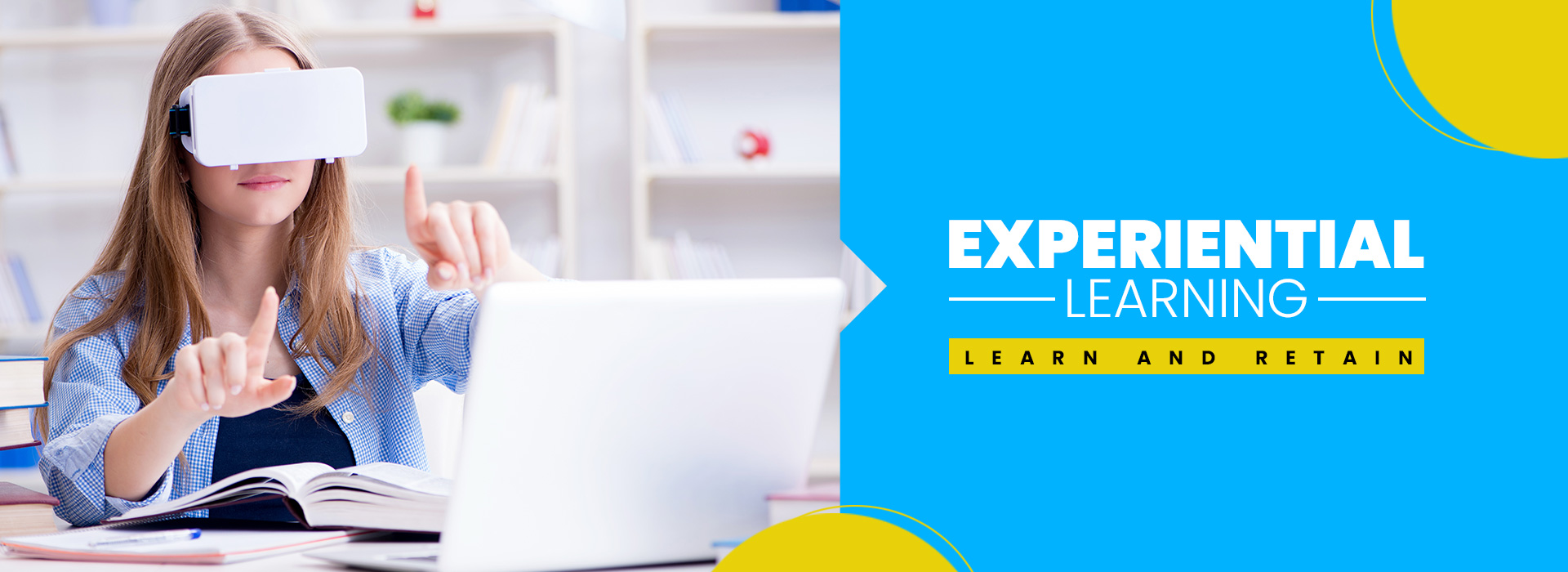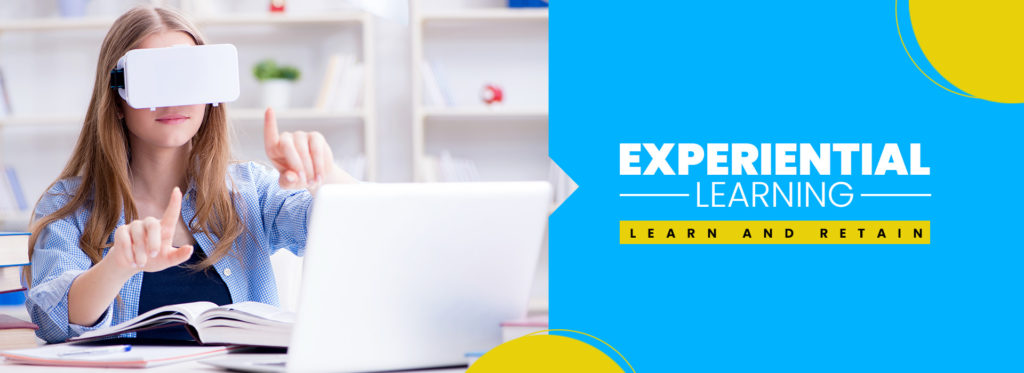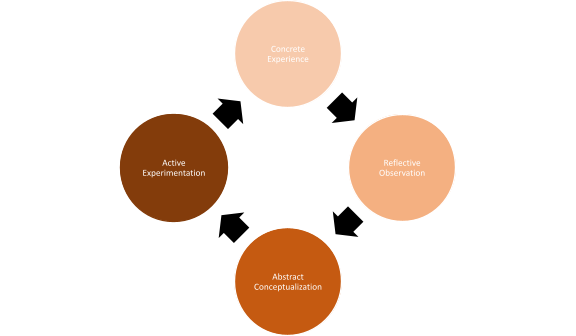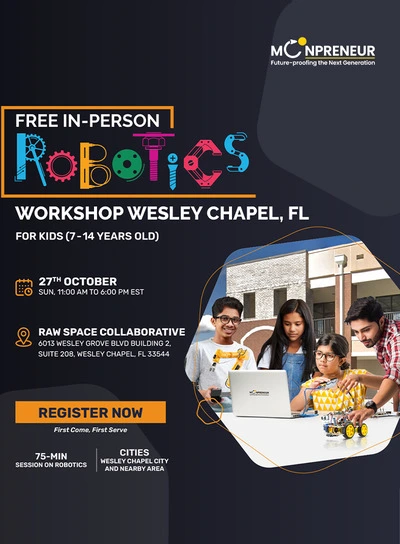

Arpana
Experiential Learning: How it Helps Learn and Retain Knowledge
Learning is the process whereby knowledge is created through the transformation of experience: David Kolb
Experience is a treasure. It provides both – wealth of knowledge and wisdom – something that cannot be earned otherwise. The way the dynamics of the world are changing and the way technology is getting prominence, a bright future could be scripted with experiential learning.
It is time, especially for parents out there to pull up their socks and discover experiential learning opportunities, an active learning process, for their children.
This learning shouldn’t be limited to academics or technological know-how. The quest should be to facilitate children with experiential learning opportunities in every possible area. Experiential learning is one of the most effective methods for retaining knowledge and information. It’s difficult to erase an experience from our memories as compared to written words.
Experiential learning offers a broader spectrum that not only offers experience but also teaches how to analyze and reflect on that experience. Without a doubt, experiential learning is beneficial as compared to passive learning, as this process puts learners into action where they have to look for solutions themselves while keeping the set rules aside.
Conventional teaching hinges on the right way of thinking and set rules. On the contrary, experiential learning defies those conventions by empowering learners to define the right way of thinking based on their experience.
The urgency to gather knowledge via experience can be explained with a common yet relatable example.
Students pursuing robotics may learn all the steps of building a robot, but without practical knowledge, they will never learn whether they are capable of doing so. Without hands-on learning experience, they cannot anticipate hurdles in the way and how to resolve them.
Most of the research and reports indicate that the futuristic job market is going to be skill-based. To find a place in that advanced, tech-dominated ecosystem, it is important to gain practical experience.
According to an article on Experiential Education at the Carleton University website, experiential learning requires the student to not only engage in the experience activity but also requires them to reflect upon their learning and how these skills learned through their academic studies can be applied beyond the classroom.
What is Experiential Learning?
MTa International, an organization that develops experiential learning materials and training resources, describes Experiential Learning as a powerful way to help people identify changes required to their skills, attitudes, and behaviors, then implement those changes for better performance.
It further elaborates that within the field of talent development, experiential learning can best be defined as “developing personal understanding, knowledge, skills, and attitudes through the analysis of, and reflection on, activity”.
Experiential Learning: Background
Scholars have been emphasizing the benefits of experiential learning for decades. Experiential learning was introduced in the early 20th century by scholars like John Dewey and Kurt Lewin.
These scholars emphasized the importance of experiential learning – learning through experience; also called learning through reflection on doing. They even advocated a learner-centric education system.
Kurt Lewin: This 20th-century psychologist, known as the founder of modern social psychology, gave a theory that the best learning is when tension exists between experience and theory and when groups are encouraged to dissect this tension through their subjective experiences. He believed in here-and-now experience to validate the theory. He also pioneered the concept of feedback, lending to the cyclical conceptualization of reflection.
John Dewey: An educational reformist, John Dewey carved a niche for himself for his theory on hands-on learning/experiential education, which is related to, but not synonymous with, experiential learning. He said that if knowledge comes from the impressions made upon us by natural objects; it is impossible to procure knowledge without the use of objects which impress the mind.
However, it was David Kolb, who introduced the Experiential Learning Theory, which he published in 1984.
His experiential learning theory works on two levels
- A four-stage cycle of learning and
- Four separate learning styles.
Kolb’s four stages of learning are:
- Concrete Experience
- Reflective Observation
- Abstract Conceptualization
- Active Experimentation
Any discussion on experiential learning is incomplete without mentioning the four-stage cycle of learning called the Kolb Cycle.
Kolb’s Cycle:
While leafing through history, we learn that technological innovations and experiential learning were growing side-by-side, but the fast-paced technology raced ahead, leaving behind experiential learning, which is still struggling to become mainstream. This is because educational institutes have yet to provide prominence to experiential learning.
Unfortunately, they are too late in realizing that to shape the future of the current generation, experiential learning should be the fulcrum of all educational activities.
Experiential Learning versus Hands-on learning
You may come across instances where experiential learning and hands-on learning are used interchangeably. As per the fact, hands-on learning is not to be used interchangeably with experiential learning because the latter is learning through reflection on doing.
Experts say that hands-on learning can be a form of experiential learning, but it does not involve students reflecting on their products.
Experiential Learning and Reflection
For a better understanding of the relationship between experiential learning and reflection, it is important to understand Graham Gibbs’ theory. According to an article on the University of Edinburgh website, he developed Gibbs’ Reflective Cycle in 1988. This helps in understanding the concept of learning through experience.
Gibb’s structure has six stages:
- Description of the experience
- Feelings and thoughts about the experience
- Evaluation of the experience, both good and bad
- Analysis to make sense of the situation
- Conclusion about what you learned and what you could have done differently
- Action plan for how you would deal with similar situations in the future, or general changes you might find appropriate.
Gibbs’ original theory was for repeated situations, but it was observed that the stages and principles apply equally well for single experiences too.
Advantages of Experiential Learning
Learn to apply theoretical knowledge to practice: When children are in the thick of a situation, they won’t wait for any prompt, they will just apply the knowledge they have acquired and further rack their brain to complete the task. The entire process works as a stimulator and improves cognitive skills in children. In the long run, it comes in handy in becoming a problem solver.
Most importantly, practice improves their reflexes. You never know when your child might come up with a solution to a lingering problem and become an innovator.
Augments learning process: Experiential learning is preferable to rote learning because learning by doing helps in retaining the experience. It can be revisited and applied anytime.
Makes learning effective: The informal setup not just helps in the transformation of knowledge from the practical experience, it also helps in retaining the lessons. In short, lessons learned through practical experiences can be retained for a longer time.
Experiential learning has become a must now. Thanks to the Fourth Revolution, the EdTech sector is floating new platforms to empower young learners with the option of learning by doing. For instance, Moonpreneur’s Innovator Program believes in providing its students with hands-on learning experiences and a learning-by-doing methodology instead of the traditional teaching methods.
Moonpreneur is on a mission to disrupt traditional education and future-proof the next generation with holistic learning solutions. Its Innovator Program is building tomorrow’s workforce by training students in AI/ML, Robotics, Coding, IoT, and Apps, enabling entrepreneurship through experiential learning.


















This article provides an excellent exploration of the theory and practicality of experiential learning, underlining its importance in today’s educational system. The Gibbs Reflective Model appears to be a critical tool for enriching this type of learning. It provides a structured approach to reflecting on experiences, leading to more profound insights and personal growth. By incorporating the six stages of Gibbs’ model, learners can effectively analyze their experiences, draw meaningful conclusions, and devise action plans for future scenarios. Furthermore, this process enhances the quality of experiential learning by ensuring that theoretical knowledge and practical experience complement each other. A deeper focus on such reflective models could indeed revolutionize contemporary education systems.
What is John Dewey’s theory of experiential learning?
Within John Dewey’s experiential learning theory, all activities unfold within a social environment. Knowledge is constructed socially and rooted in experiences. This knowledge is best organized within real-life experiences that offer a context for the information.
Can you explain the key concepts of experiential learning?
The experiential learning theory operates through four stages: concrete learning, reflective observation, abstract conceptualization, and active experimentation. The initial two stages of the cycle involve comprehending an experience, while the latter two concentrate on converting an experience.
What is the role of experiential learning methods in the training process?
Students frequently seek ways to translate theories and lessons from their courses into practical applications in the real world. Experiential assignments provide them with opportunities to learn by actively engaging in tasks, identifying strengths, learning from errors, and honing their skills as effective learners.